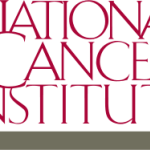- 行业: Government; Health care
- Number of terms: 6957
- Number of blossaries: 0
- Company Profile:
The National Cancer Institute (NCI) is part of the National Institutes of Health (NIH), which is one of 11 agencies that compose the Department of Health and Human Services (HHS). The NCI, established under the National Cancer Institute Act of 1937, is the Federal Government's principal agency for ...
An orally bioavailable inhibitor of the serine/threonine protein kinase Akt (protein kinase B) with potential antineoplastic activity. Akt inhibitor GSK2141795 binds to and inhibits the activity of Akt, which may result in inhibition of the PI3K/Akt signaling pathway and tumor cell proliferation and the induction of tumor cell apoptosis. Activation of the PI3K/Akt signaling pathway is frequently associated with tumorigenesis and dysregulated PI3K/Akt signaling may contribute to tumor resistance to a variety of antineoplastic agents.
Industry:Pharmaceutical
An orally bioavailable inhibitor of the serine/threonine protein kinase Akt (protein kinase B) with potential antineoplastic activity. Akt inhibitor LY2780301 binds to and inhibits the activity of Akt, which may result in inhibition of the PI3K/Akt signaling pathway, thereby leading to inhibition of cell proliferation and the induction of apoptosis in tumor cells. Activation of the PI3K/Akt signaling pathway is frequently associated with tumorigenesis and dysregulated PI3K/Akt signaling may contribute to tumor resistance to a variety of antineoplastic agents.
Industry:Pharmaceutical
An orally bioavailable inhibitor of vascular endothelial growth factor receptor (VEGFR) and Tie2 receptor tyrosine kinases with potential antiangiogenic and antineoplastic activities. Pan-VEGFR/Tie2 tyrosine kinase inhibitor CEP-11981 selectively binds to VEGFR and Tie2 receptor tyrosine kinases, which may result the inhibition of endothelial cell migration, proliferation and survival and the inhibition of tumor cell proliferation and tumor cell death. VEGFR and Tie2 are frequently overexpressed by a variety of tumor cell types and play crucial roles in the regulation of angiogenesis and the maintenance of tumor blood vessels. Tie2 (tyrosine kinase with immunoglobulin-like and EGF-like domains) is activated by angiopoietin-1 (Ang-1).
Industry:Pharmaceutical
An orally bioavailable inhibitor of vascular endothelial growth factor receptors (VEGFRs) 1, 2 and 3 with potential antiangiogenic and antineoplastic activities. Tivozanib binds to and inhibits VEGFRs 1, 2 and 3, which may result in the inhibition of endothelial cell migration and proliferation, inhibition of tumor angiogenesis and tumor cell death. VEGFR tyrosine kinases, frequently overexpressed by a variety of tumor cell types, play a key role in angiogenesis.
Industry:Pharmaceutical
An orally bioavailable Janus-associated kinase (JAK) inhibitor with potential antineoplastic and immunomodulating activities. Oral JAK inhibitor INCB18424 specifically binds to and inhibits protein tyrosine kinases JAK 1 and 2, which may lead to a reduction in inflammation and an inhibition of cellular proliferation. The JAK-STAT (signal transducer and activator of transcription) pathway plays a key role in the signaling of many cytokines and growth factors and is involved in cellular proliferation, growth, hematopoiesis, and the immune response; JAK kinases may be upregulated in inflammatory diseases, myeloproliferative disorders, and various malignancies.
Industry:Pharmaceutical
An orally bioavailable leucine enriched essential amino acid dietary supplement with potential anti-cachexia activity. Leucine-enhanced essential amino acid nutritional supplement may stimulate the mammalian target of rapamycin (mTOR) signaling pathway, which may promote protein synthesis in muscle cells. Although the exact mechanism by which leucine and other essential amino acids stimulate mTOR has yet to be fully elucidated, leucine may stimulate mTOR by inhibiting adenosine monophosphate protein kinase (AMPK), which negatively controls mTOR signaling.
Industry:Pharmaceutical
An orally bioavailable mammalian target of rapamycin (mTOR) kinase inhibitor with potential antineoplastic activity. MTOR kinase inhibitor OSI-027 binds to and inhibits both the raptor-mTOR (TOR complex 1 or TORC1) and the rictor-mTOR (TOR complex 2 or TORC2) complexes of mTOR, which may result in tumor cell apoptosis and a decrease in tumor cell proliferation. MTOR is a serine/threonine kinase that is upregulated in some tumors and plays an important role downstream in the PI3K/Akt/mTOR signaling pathway.
Industry:Pharmaceutical
An orally bioavailable multiple-receptor tyrosine kinase inhibitor. AEE788 inhibits phosphorylation of the tyrosine kinases of epidermal growth factor receptor (EGFR), human epidermal growth factor receptor 2 (HER2), and vascular endothelial growth factor receptor 2 (VEGF2), resulting in receptor inhibition, the inhibition of cellular proliferation, and induction of tumor cell and tumor-associated endothelial cell apoptosis.
Industry:Pharmaceutical
An orally bioavailable multitargeted receptor tyrosine kinase (RTK) inhibitor with potential antiangiogenic and antineoplastic activities. Ponatinib hydrochloride inhibits unmutated and all mutated forms of Bcr-Abl, including T315I, the highly drug therapy-resistant missense mutation of Bcr-Abl. This agent also inhibits other tyrosine kinases including those associated with vascular endothelial growth factor receptors (VEGFRs) and fibroblast growth factor receptors (FGFRs); in addition, it inhibits the tyrosine kinase receptor TIE2 and FMS-related tyrosine kinase receptor-3 (Flt3). RTK inhibition by ponatinib hydrochloride may result in the inhibition of cellular proliferation and angiogenesis and may induce cell death. Bcr-Abl is a fusion tyrosine kinase encoded by the Philadelphia chromosome.
Industry:Pharmaceutical
An orally bioavailable nanoparticle albumin-bound inhibitor of heat shock protein 90 (Hsp90) with potential antineoplastic activity. Hsp90 inhibitor AB-010 selectively binds to Hsp90, inhibiting its chaperone function and promoting the degradation of oncogenic signaling proteins involved in tumor cell proliferation and survival. This agent may inhibit the growth of a wide variety of cancer cell types; the incorporation of albumin into its formulation may facilitate its endothelial transcytosis through the gp60-regulated albumin transport pathway. Hsp90, a chaperone protein upregulated in a variety of tumor cells, regulates the folding and degradation of many oncogenic signaling proteins.
Industry:Pharmaceutical
